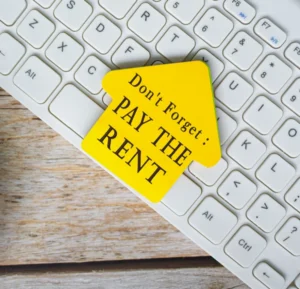A Guide for Landlords

What Are Owner Statements?
As a landlord or property owner, staying on top of your investment’s financial health is essential. Whether you self-manage or work with a property management company, one of the most important tools for tracking income, expenses, and profitability is the owner statement. This document provides a clear overview of your rental property’s financial performance.
Below, we’ll break down what an owner statement is, what it typically includes, how often you should expect to receive one, and why it matters so much for your bottom line.
What Is an Owner Statement?
An ownership statement, sometimes called a landlord statement or property management report, is a document containing a detailed financial summary. It outlines all income and expenses related to a rental property over a specific period. This is a different document than a statement of ownership, which confirms your legal rights over your property.
Owner statements may be generated by a property management company and made available via email or an online owner portal. For landlords who self-manage, creating one can still be incredibly valuable for tracking finances and preparing for tax season.
What’s Typically Included in an Owner Statement?
While the exact format can vary depending on the property management software or company, most owner statements include the following key components:
- Rental Income: This section shows how much rent has been collected from tenants during the reporting period (including revenue from parking, laundry, and other amenities). A rental statement may also note if any payments were late, partial, or still outstanding.
- Operating Expenses: This part outlines all expenses related to managing and maintaining the property. It may include:
- Property management fees
- Maintenance and repair costs
- Utility payments (if applicable)
- HOA dues
- Landscaping or pest control
- Legal or administrative fees
- Owner Disbursements: After income and expenses are tallied, this section shows the net amount disbursed to you—the owner. It may list the method of payment (e.g., bank transfer) and the date funds were sent.
- Reserve Fund Activity: If your management agreement includes a reserve fund (used for emergency repairs or maintenance), your statement will detail any contributions to or withdrawals from this account.
- Itemized Transactions: Some statements provide a line-by-line breakdown of each transaction, including dates, vendors, and descriptions. This level of detail is especially helpful for recordkeeping and tax preparation.
Get a Free Multifamily Loan Quote
Access Non-Recourse, 10+ Year Fixed, 30-Year Amortization
How Often Are Owner Statements Sent?
Owner statements are typically sent monthly, providing a consistent financial snapshot of your rental property’s performance. Most property management companies distribute these reports within the first week of the new month, once all income and expenses from the previous month have been finalized. This ensures landlords receive accurate data on rent collection, maintenance costs, and disbursements.
In addition to monthly rental statements, some landlords may receive quarterly summaries to track broader financial trends or annual owner statements used for tax reporting. These annual reports often include cumulative income and expenses, plus IRS Form 1099 for tax filing purposes.
If you’re self-managing your property, it’s still a good practice to generate monthly or at least quarterly statements. Regular reporting not only keeps your finances organized but also helps you spot patterns, budget more effectively, and stay compliant with tax requirements. Consistent reporting is key to maintaining financial control and transparency over your investment.
Why Owner Statements Are Important for Landlords
Owner statements play a vital role in helping landlords manage their rental properties efficiently. Here’s why they matter:
- Financial Clarity: Track income, expenses, and net cash flow to evaluate the profitability of your rental property.
- Simplified Tax Preparation: Use itemized statements to accurately report income and claim deductions—no need to sort through piles of receipts.
- Accountability: Verify that your property management company is collecting rent, paying vendors, and handling funds properly.
- Performance Monitoring: Spot trends such as rising maintenance costs or consistent late payments, and adjust your strategy accordingly.
- Informed Decision-Making: Use financial data to guide decisions about rent increases, renovations, or expanding your portfolio.
- Professional Recordkeeping: Maintain organized, audit-ready documentation for lenders, accountants, or potential buyers.
Owner statements aren’t just paperwork—they’re essential tools for growing and protecting your investment.
Partner with a Property Manager Who Puts Transparency First
Clear, consistent owner statements are just one part of running a profitable rental business—the right property manager makes all the difference.
Source: Genuine Property Management













 Accessibility
Accessibility